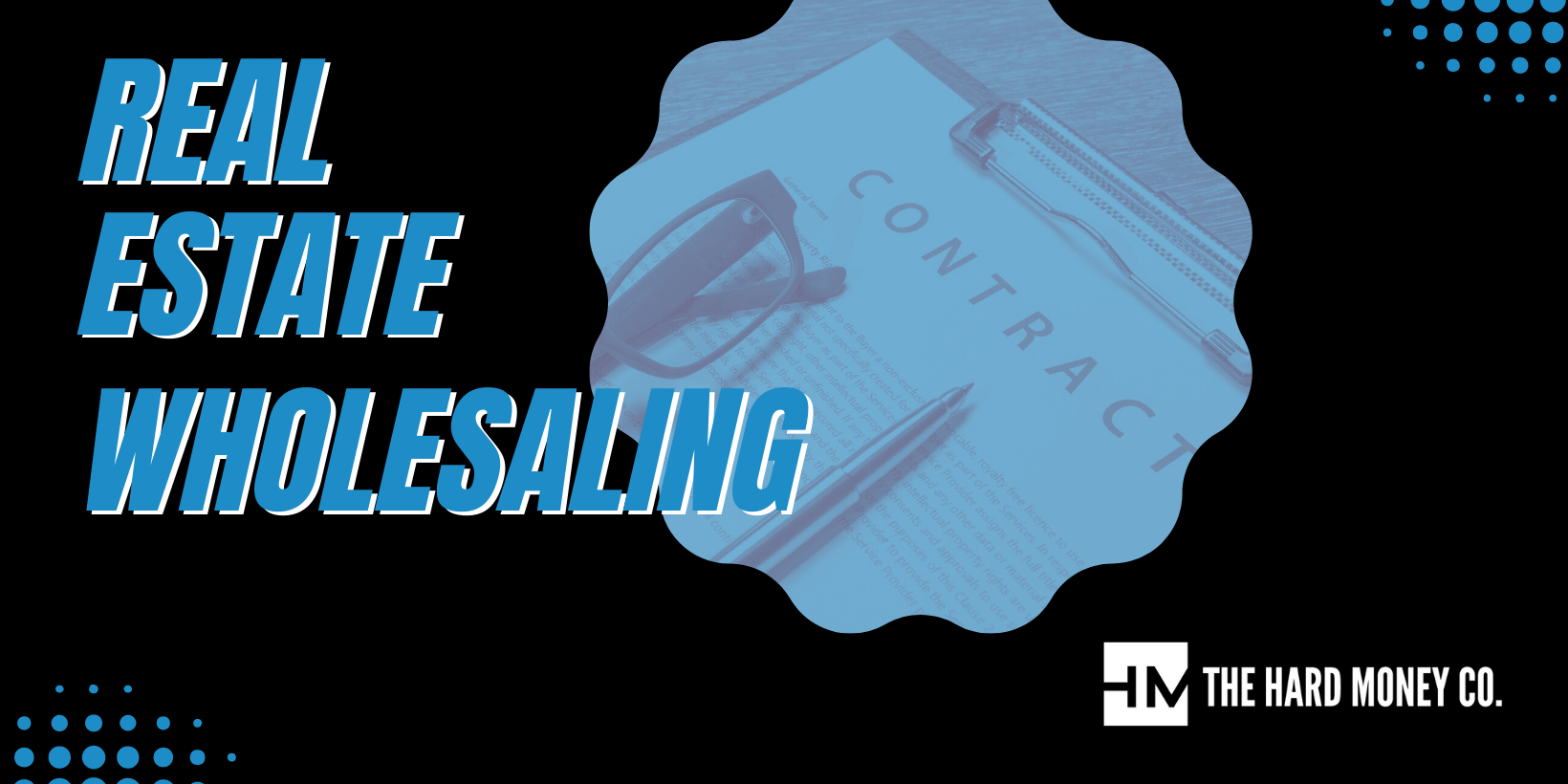Wholesaling in the real estate world is simple, but that doesn't make it easy. Here's how it works. You identify a property through intense marketing efforts with an owner who is highly motivated to sell. Maybe they inherited the property or are otherwise in a position where the money is more enticing than ongoing ownership. The home likely needs a lot of work but is in an area that is otherwise desirable or prime for development. You approach the owner and negotiate a price at which they are willing to sell the price.
This is pretty conventional with most real estate strategies. In wholesaling, however, your goal isn't actually to close on the property. Your intent is to assign the contract with the owner to another investor who will do the more costly and time-intensive work of renovating and re-selling. Your profit on the project is simply the margin between your negotiated contract and the amount you sell it for to the investor.
Many people lament the existence of wholesalers, as they see them as simply removing equity from the transaction between seller and investor; a glorified broker. But the truth is that wholesalers bring value to both sides and create deals where they otherwise wouldn't have existed. Many of the properties sold in wholesale transactions originate from an owner who has no interest in the ongoing maintenance of the property. These are often distressed beyond ordinary repair efforts and require professional attention. The owner would gladly take a lump sum, cash payout in order to be rid of the property quickly.
The other side of the transaction sees just as much, if not more, value. Professional flippers don't necessarily have time to put in the marketing efforts to identify off-market properties that are prime investment opportunities. Their efforts are focused on the renovation, rental, and ultimate resale of the property. Wholesalers provide liquidity to the marketplace and are compensated according to the value they create.
What Does This Look Like?
The wholesaler finds a property that was recently inherited by a middle-aged couple. The home is in deep disrepair and requires upwards of $75,000 before it would become habitable. The current owners have no sentimental attachment to the property and would rather have cash now than oversee a rehab themselves. The property is in a desirable community, close to stores, schools, and parks; so the wholesaler immediately recognizes the potential. They offer the owners $125,000 to get it under contract.
Now the wholesaler is responsible for completing the other side of the transaction. This means finding an investor who is willing to pay some price above the $125,000. Wholesalers work to keep a network of investors who may be interested in a property at any given time. One particular investor sees the property and the neighborhood and believes that after the $75,000 in renovations that they'll be able to sell the property for nearly $300,000. They buy the contract for $140,000. This gives the wholesaler a profit of $15,000 and, if all goes well, the investor a profit potential of $85,000.
Again, it’s a simple process, but that doesn't mean it's easy work. There are also a number of wrinkles that may arise based on your circumstances that you should be well aware of before getting started.
Here are a few that you might want to consider.
Local Rules and Regulations
Your home state or municipality might have regulations on who is legally allowed to earn a commission on a property transaction. This may be limited to licensed real estate agents or business entities. This doesn't prohibit you from getting started, but it does mean that you need to take the necessary steps to ensure compliance. This may mean getting licensed, or setting up a specific business entity for the property and using an 'assignment' to complete the transaction.
It may be worthwhile to work with a real estate attorney prior to beginning. They can give you the assurance you need that your strategy is compliant with regulations and can help you navigate any legal obstacles that might be present.
Research will make or break your success
The most important saying in the business is that "All real estate is local". This means that knowing your market like your own backyard is the bare minimum requirement for success. Above and beyond means extensive research and prospecting to build your database, contact list, reference properties, and knowledge of the communities in which you work. All of this comes together to tell you what to offer, and ultimately how much you profit on your wholesale deals.
Do the Work
This goes back to the 'not easy' thing. Anybody can get into wholesaling, but those who find success are the ones grinding. They have the mentality that the next deal is right around the corner and if they knock on 100 doors without finding a seller, they'll just knock on 100 more. Finding properties isn't the only part that requires work, though. Wholesalers need to constantly cultivate their investor network so when they do land a property, they can sell it to fulfill the deal. Having a contract fall through can be costly, and can lose you credibility in your market. You need to be sure you are doing the work from A to Z in order to find success.
You Might Require Capital
Even though you aren't purchasing the property, there still might be some capital required in order to get your operation rolling. The first and foremost expense is in marketing. Yes, you can get deals through sheer force of will, but even small-scale printing costs can add up over time. If you eventually want to expand into a more professionalized operation you will need digital ad spending, cold-callers, or more which all cost money.
The deal itself can also require some spending. Many times, sellers ask that you put down an earnest money deposit to show that you are serious about completing the contract. The industry is littered with bad actors who hold contracts with no intent to move them in the short term. The earnest money is a show of good faith.
Opportunity on the Flip
Wholesaling is enticing because it offers a pure profit margin on the transaction. The legwork is all on the deal side and doesn't require you to put in the sweat equity typically associated with residential real estate investing. But this simplicity also limits your upside. The most successful wholesalers in the country have pivoted to a hybrid business model where they fix and flip the 'home run' properties.
With intimate knowledge of the contract from the start, they are able to identify properties with excessive upside potential and flip them themselves. This can yield 6-7X the profit of the wholesale itself.
But, you might be thinking, don't people get into wholesaling because they don't have the capital to purchase the properties outright? Hard money offers the perfect solution for wholesalers in this position. Hard money is a short-term loan that allows an investor to purchase a property and provide cash to the seller. Better yet, hard money financing can be completed quickly and even offers funds for necessary repairs. The short term of the loan allows the investor to perform the flip and realize their return in full.
The reason this offers so much upside for wholesalers is that they see so many deals cross their path, that they know which ones have the biggest potential. By selectively choosing these while continuing to wholesale other, less profitable properties, they can maximize their efforts and profits.
These are just a few of the most important insights into the world of wholesaling. For additional information, check back with The Hard Money Co. blog or subscribe to The Hard Money Newsletter.


